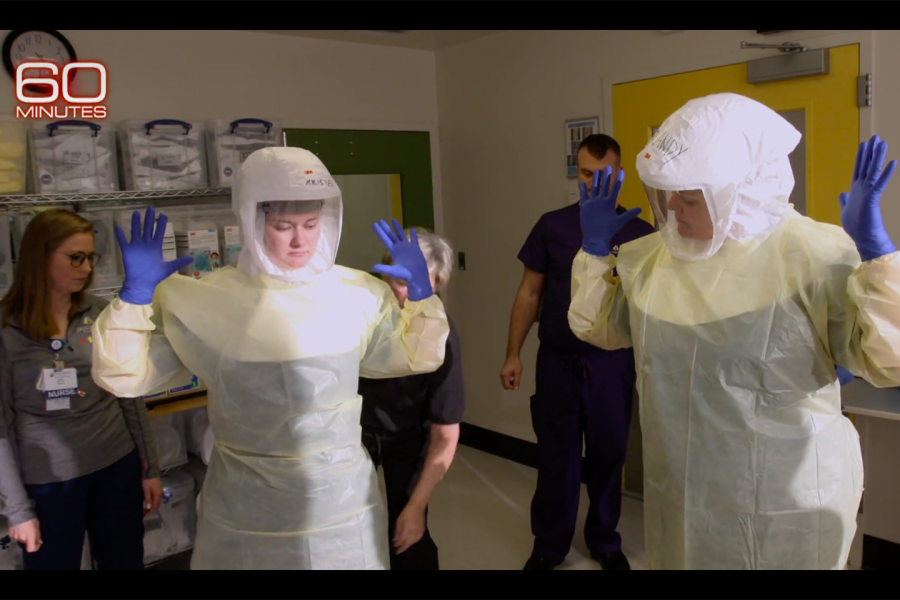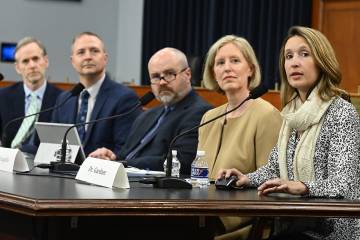A team of 40 Johns Hopkins researchers, engineers, nurses, and medical scientists are coordinating to address the ongoing outbreak of coronavirus that has, as of today, infected more than 111,000 people around the world and killed nearly 3,900. During a segment that aired Sunday night on 60 Minutes, CBS News chief medical correspondent Jonathan LaPook toured the team's "command center" and discussed how Johns Hopkins is responding to the spread of COVID-19.
The questions the team is working to address and the plans they are developing are manifold, says Johns Hopkins epidemiologist Lisa Maragakis, senior director of infection prevention for the Johns Hopkins Health System.
"Where would we place patients who have a respiratory virus in a pandemic? How are we going to staff those areas? What measures might we take to prevent those patients who are infected with the pandemic virus from transmitting it to our other patients, and also to our personnel?" Maragakis says.
60 Minutes went inside the Biocontainment Unit at Johns Hopkins where medical staff are practicing how to care for patients with COVID-19, while keeping themselves safe. https://t.co/MEfXDWcehk pic.twitter.com/t0aLqAWNri
— 60 Minutes (@60Minutes) March 8, 2020
Infected patients will be admitted to a biocontainment unit that was developed in response to the 2014 Ebola outbreak, which uses exhaust fans to create negative air pressure to contain pathogens released into the air. Triage nurses in the emergency department of Johns Hopkins Hospital are routinely screening patients for fever, cough, and shortness of breath—all early symptoms of COVID-19.
As the virus continues to spread, the public health understanding of the disease evolves as well. And the outbreak reaches new milestones all the time. Tom Inglesby, director of the Johns Hopkins Center for Health Security, says the case number and spread fits the criteria of being considered a pandemic.
"I think this disease meets the definition of pandemic," he tells LaPook. "We have cases on all continents."
He adds during the segment that despite findings from the Global Health Security Index indicating that the U.S. is the most prepared country in the world to respond to an outbreak of this nature, it is important for public health agencies to accurately describe the risk of the disease.
"Public health agencies aren't departments of reassurance, they're departments of public health," Inglesby says. "They need to tell people what kind of interventions will be most useful for their families, for their communities, [and] what individuals can do to try and decrease their own risks."
Read more from 60 MinutesPosted in Health, University News
Tagged public health, coronavirus










